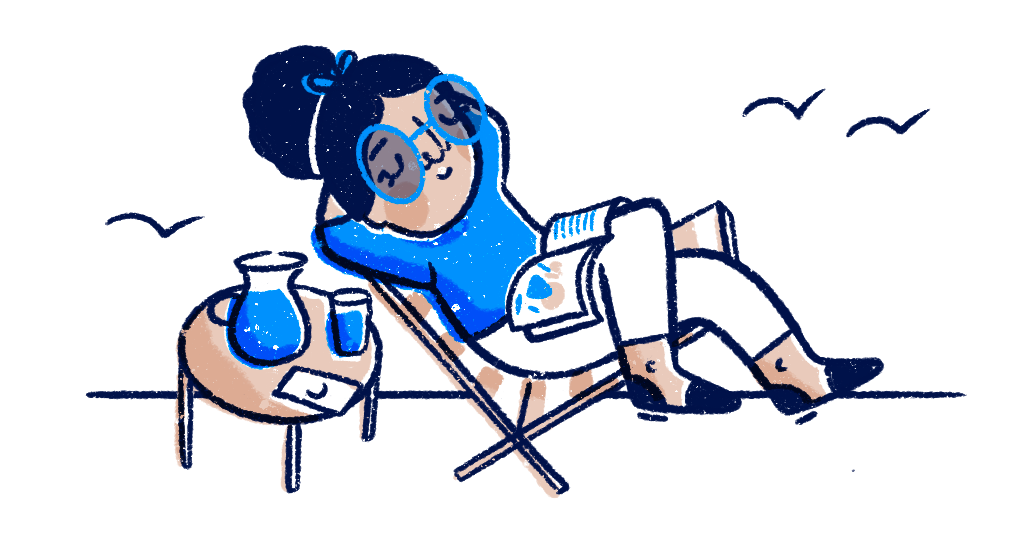How are you doing? This is a time of uncertainty and change for all of us, everywhere. We’re figuring out new routines and ways of doing life, figuring out a new normal. Now, more than ever, we can give ourselves (and the people we work with, live with, and interact with) an extra dose of patience. Transition often brings with it additional levels of stress and anxiety as we adjust to new realities. We are in a time where we have to let go of routines and ways of life that we were used to and comfortable in, and figure out new ones.
With that in mind, I’d like to know—is the way you’re doing work working for you?
Let’s Talk About Burnout
Even without a pandemic going on, burnout is a huge issue in our current work environment. A recent Gallup study found that 23% of employees reported feeling burned out at work very often or always, and an additional 44% reported feeling burned out sometimes. That’s a lot of us!
So, what exactly is burnout? The World Health Organization defines burnout as a syndrome resulting from chronic workplace stress that has not been adequately managed, and it’s characterized by:
- Physical and emotional exhaustion.
- Cynicism and detachment.
- Feelings of ineffectiveness and lack of accomplishment.
It’s considered an occupational phenomenon, as burnout in this case refers specifically to work-related stress, and not stress from other areas of life—although stress from work definitely contributes to our overall life stress levels! Stress and anxiety don’t stay neatly tucked away in little boxes.
How Do You Know if You’re Experiencing Burnout?
Well, if you’re burnt out, you may have an idea that you are! But the tricky thing with burnout is that it builds up slowly over time, which can make it hard to recognize that’s what you’re experiencing.
Burnout can look like:
- Being worried about work when you’re not at work (often).
- Having trouble sleeping: Not being able to fall asleep because you feel plagued by your to dos, waking up in the middle of the night thinking about what you need to do the next day.
- Health problems: Our bodies’ ability to fight off sicknesses is significantly decreased when we’re loaded down with ongoing stress.
- Increased anxiety & panic.
- Consistently feeling exhausted.
- Isolation: When you’re exhausted from being constantly stressed out, doing things you would otherwise enjoy, like spending time with people or doing hobbies or activities can feel like an overload, so you just opt out.
- Feeling unmotivated: Feeling like you have so much to do, and that you aren’t getting things done that you’d like to can make you feel ineffective and hinder you from getting other things done.
- Lack of concentration & forgetfulness: The stress and exhaustion takes its toll and can make it difficult to focus on the task at hand.
Workplace Factors
Okay, so if you are experiencing burnout, you might be nodding your head to some or a lot of these things right now. Next, let’s dig into your current work environment. Consider specifically the following five aspects of your workplace, as they’re the main contributors to burnout.
Think about:
| Workplace element | How this looks in burnout |
|---|---|
| How you’re treated at work | Unfair treatment at work |
| Your workload | Unmanageable workload |
| Clarity around what you’re supposed to be doing | Lack of role clarity |
| Communication & support from your manager | Lack of these |
| Time/deadline pressures | Unreasonable time pressure |
So, Now What?
Well, if you are burned out and you’re realizing it now, that’s a great first step! Giving a name to something that’s wrong means that you can then do something about it.
A good next step would be to consider the workplace elements, and determine which areas are going well in your work experience, and which areas could use some improvement or change. From there, start a conversation with your manager!
At ReadMe, and hopefully in your workplace, we want the best version of you, and we want to continually be cultivating an environment that all of us can thrive in. It’s often really helpful to say things out loud, because it can help you to figure out what’s going on, and dive deeper into it with another person.
Then, work with your manager to figure out what can be done to improve your workplace experience. If your workload is feeling unmanageable, perhaps you can work together to figure out what project or projects could be put on the back burner for a while to balance things out. If you realize that a lack of role clarity is making it hard to determine where to best focus your time and energy, maybe you can work together to go back to the basics and create a list or job description for your role to get on the same page about what tasks you should be focusing on to be the most valuable for you.
A Focus on Wellbeing
 Illustrations by Druscilla Santiago.
Illustrations by Druscilla Santiago.
Back to the Basics
If you’re feeling burned out, the ongoing stress and exhaustion can really take a toll on your mind and body. If you’re in a place of extreme burnout, it may be helpful to just go back to the basics to begin with. Take care of yourself! 💙 Remind yourself to eat regularly. Try to get a good night’s sleep as often as you can. Your body needs rest and fuel, as stress zaps so much energy.
Exercise
Exercise is a great and free stress reducer! Find an activity you love (if you want!), even if it’s “just” something like getting out for a walk to a nearby park. Spending some time in nature, even if it’s just tiny pockets of nature if you live in a city like I do, is so valuable for our health and wellbeing. Maybe find an online yoga or workout class to do from home if that’s something that sounds good to you.
Take Care of Your Mental Health
See a therapist if you want to! I found a therapist I love using Reflect—a service that makes it easy to help you find a therapist that will match well with what you’re looking for, and that takes the admin work out of the search. I have friends that have used BetterHelp to find a therapist—it’s completely online and has video, phone, and chat therapy options. Psychology Today also has a solid list of therapists to search and choose from in your area.
You Don't Have To Be Always on
In the era of So Many Devices, it’s easy to fall into the trap of thinking you need to instantly respond to everything, and be available at all times. You don’t have to be always on! Especially in a time when so many of us are working from home, it’s essential to be intentional about our time, and to set boundaries and schedules that work for us personally. Utilize Slack’s Do Not Disturb settings so you only receive notifications during hours you’ve specified.
Try to be mindful of when you’re communicating with others as well. A really useful tool I love is Timy, for scheduling Slack messages. If I think of a question for a coworker or of something I’d like someone to do at 10pm, I schedule the message to be sent to them in the morning. That way, I get the message written down and out of my head, but I don’t have to interrupt someone’s evening.
Hobbies!
This one is last on the list, because it’s something that, if you’re currently experiencing burnout is not helpful, because adding extra things to your to do list is more likely to contribute to stress! But finding hobbies and activities that you love can contribute to creating a life that you enjoy. At a time where we’re mostly indoors, we might have to get a little more creative with it! In theory, I’ll be using this time to improve my guitar playing skills, take some online courses, and read a lot (reality so far has been a lot of Netflix shows!). When we can go outside again, I want to take a pottery class.
Starting a Conversation
Finding a work-life balance that works for you is an ongoing journey. If you’ve found that you are burned out, I hope that some of these suggestions can maybe help you find a little more of that balance. Check in with yourself regularly on how work is going for you, and begin or continue a conversation with the people you work closely with about it.

